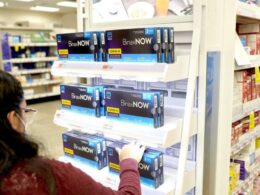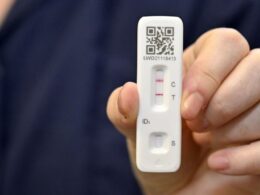Many experts argue it would have been better to flood the market with tests and let people test regularly to minimise the disruption caused by a single false result.
Financial Times
Additional reporting by Jamie Smyth in New York
January 27, 2022
This is an excerpt of the article “How the Biden administration failed the Omicron test”, focusing on the topic of Rapid Tests, edited by the Author of this blog. The purpose here is help fighting the pandemic, targeting the Brazilian audience.
Health and Tech Strategy
Joaquim Cardoso MSc. (Chief Editor of the blog [content platform])
January 28, 2022
Sluggish approvals
Slow decision-making and a lack of co-ordination have also plagued the Food and Drug Administration (FDA), the organisation responsible for approving new drugs in the US.
The FDA is considered by many to have performed better during the pandemic than the CDC, not least because of its success in approving three safe and effective vaccines.
But the agency has stumbled in other fields, most notably in approving rapid at-home tests.
Unlike in the UK, where such tests have been available free from pharmacies for much of the pandemic, US residents have until recently had to pay about $24 for a pair of tests, when they could find them.
During the Omicron wave, pharmacies began rationing them due to short supplies, before running out completely in many major cities.
The cause of this lack of supply is in part due to the slow pace at which the FDA has approved new tests.
For months, only two companies were allowed to sell at-home tests: Quidel and Abbott.
Smaller companies say they found it impossible to navigate the regulator’s complex and stringent approvals process.
“The rapid test situation is a disaster,” says Matt Stoller, director of research at the American Economic Liberties Project, a progressive think-tank.
“If you put out an at-home pregnancy test right now the FDA would probably oppose it as not being accurate enough.”
Senior officials at the FDA have previously told the FT they wanted to make sure people did not take undue confidence from a false negative test.
But many experts argue it would have been better to flood the market with tests and let people test regularly to minimise the disruption caused by a single false result.
The FDA has now granted authorisation to many more at-home tests, while the White House recently promised to buy about 1bn of them to distribute to people’s homes.
But the tension between upholding rigorous standards and moving fast enough to pre-empt a public health crisis played out again with booster doses.
But many experts argue it would have been better to flood the market with tests and let people test regularly to minimise the disruption caused by a single false result.
Originally published at https://www.ft.com on January 26, 2022. (full version)
Names cited:
Abbot, Quidell,
FDA,
Matt Stoller, director of research at the American Economic Liberties Project, a progressive think-tank












